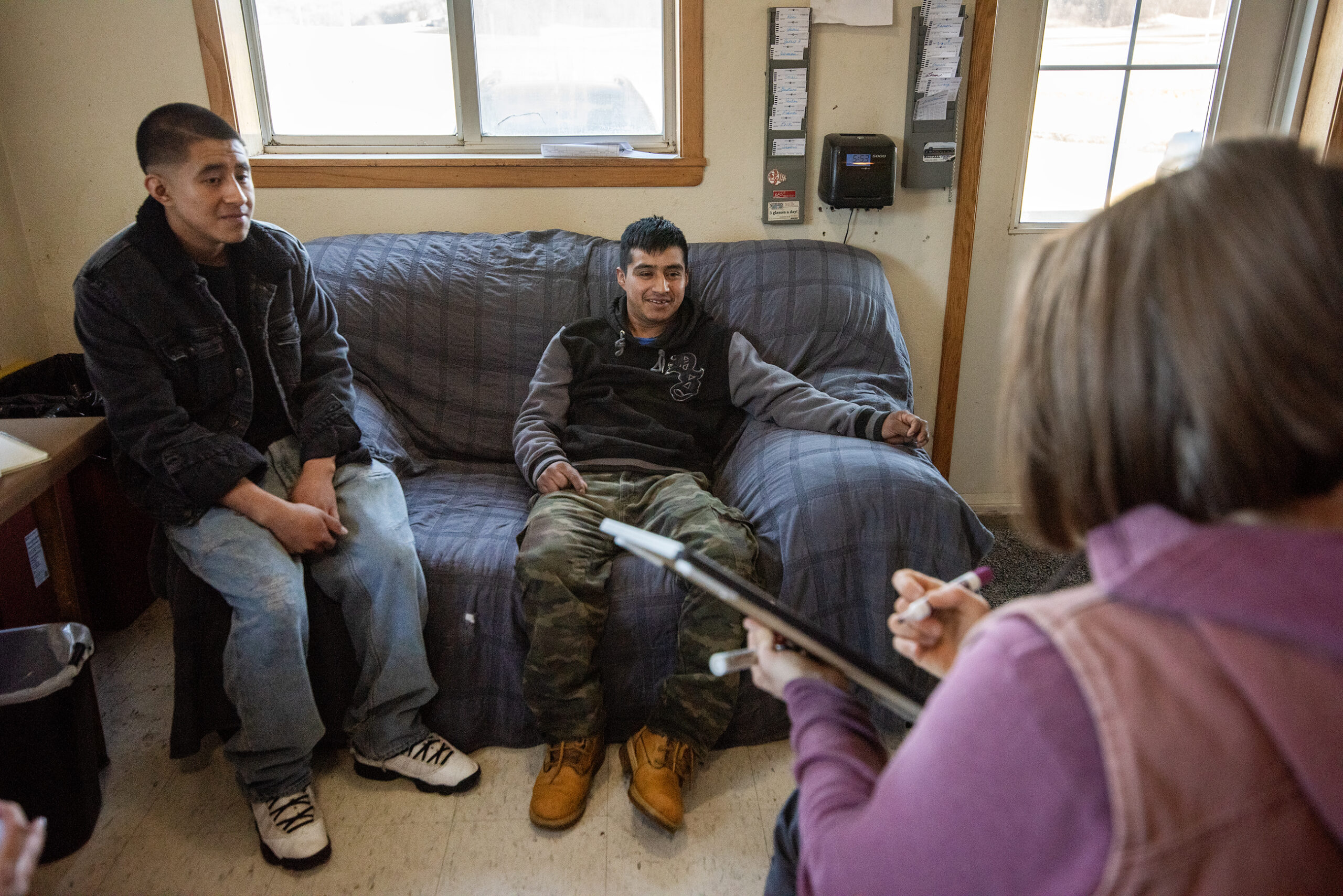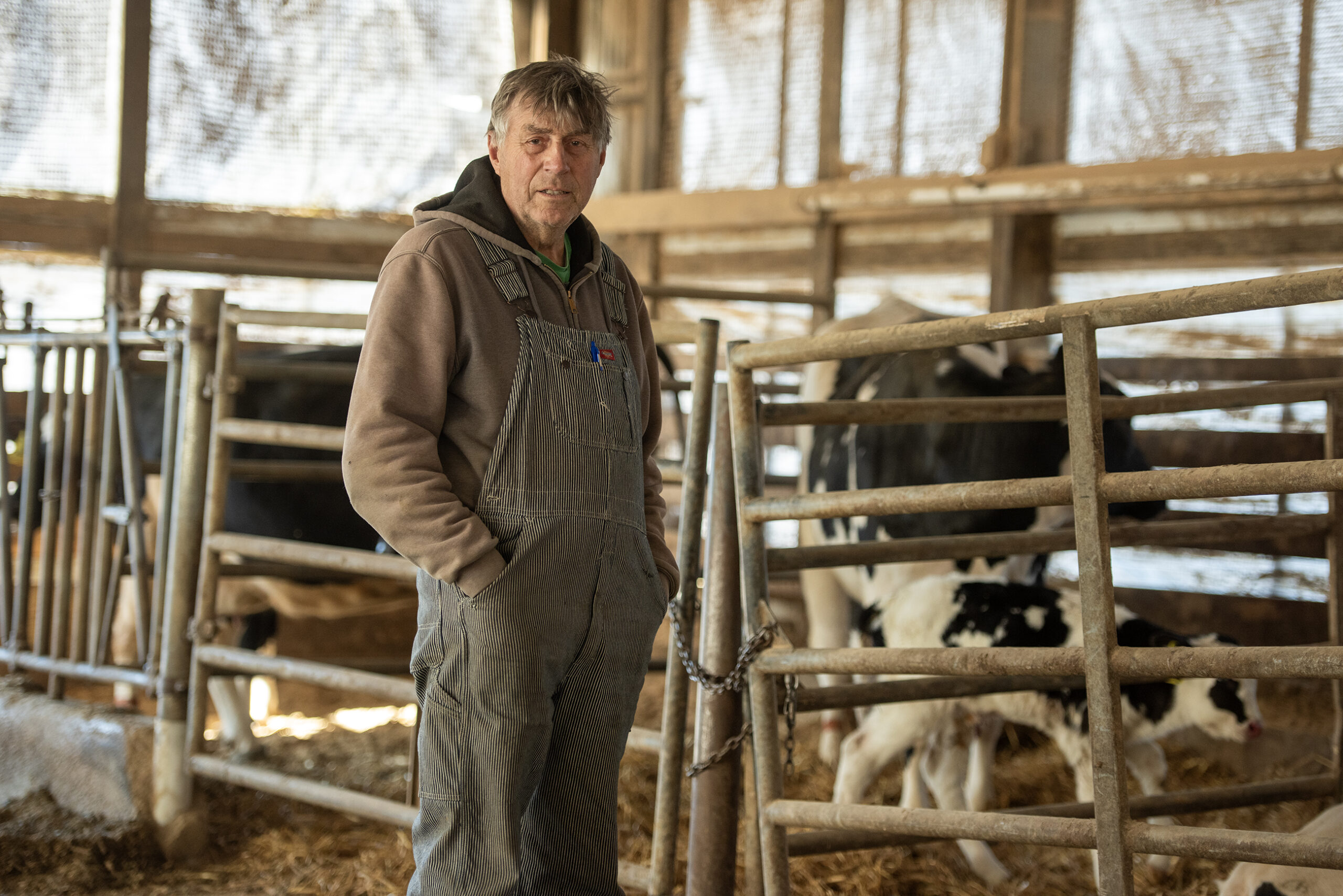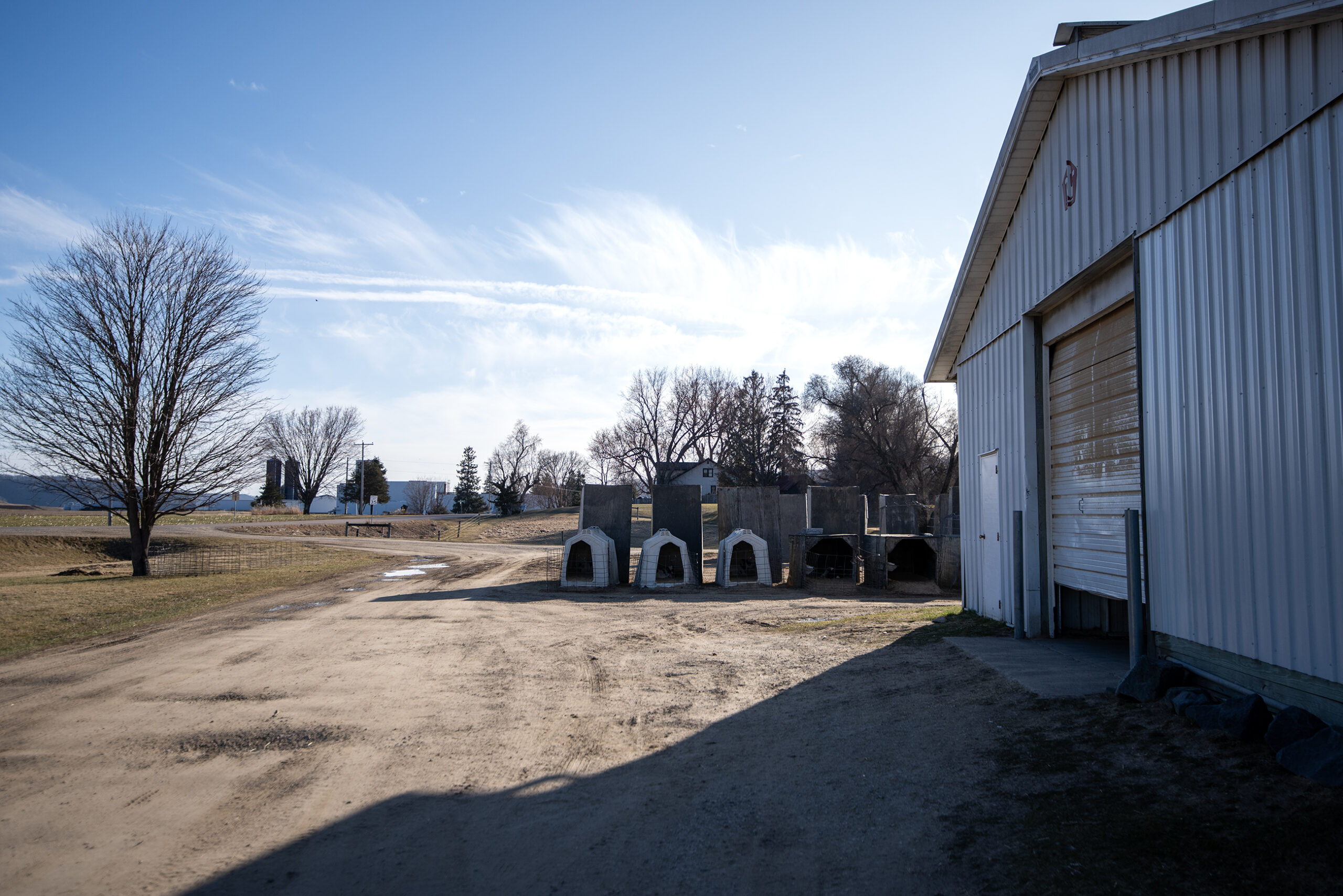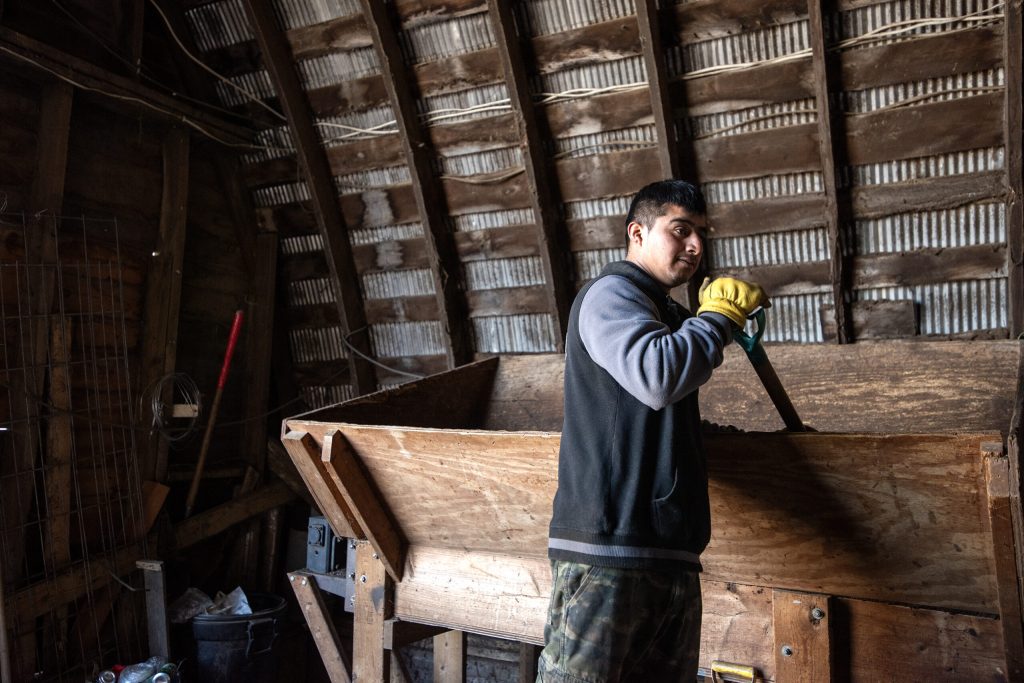
Farmers and workers hope economics can protect them.
Once a week on a dairy farm in Buffalo County, there’s a class to help workers from Mexico learn English. Gathered in a small kitchenette next to the milking parlor, the students work on a lesson about things they are proud of.
“I am proud of myself because I am saving money for building a house in Mexico,” said Kevin, who came to Wisconsin about five years ago, arriving from Mexico in the January cold. WPR is only using workers’ first names because of their immigration statuses.
Kevin says he never feared being deported before the 2024 election. But now, he said, things have changed.

On the campaign trail, President Donald Trump promised “mass deportations.” It’s been a big concern for industries, like dairy in Wisconsin, that rely on the labor of workers without legal immigration status.
Now, a few months into the new administration, the immigration rhetoric is still intense. There have been many high-profile deportations.
Still, Wisconsin dairy workers are carrying on with their work, as those enforcement efforts have been focused elsewhere.
‘We think it’s rhetoric’
Kevin isn’t scared, he said, just worried, mostly about the possibility of being treated badly by immigration authorities. But he hasn’t changed his day-to-day behavior at all.
For the dairy industry, that’s good. A report from the University of Wisconsin-Madison estimates immigrants without legal status perform about 70 percent of the labor on Wisconsin dairy farms.
Farm owner John Rosenow said Kevin reflects how a lot of dairy workers feel about the new Trump administration.
“They’re basing everything off of last time,” he said. “(Trump) said the same thing last time, and then nothing happened. And so people aren’t going home. They’re staying and they’re working and going about their daily lives.”

The majority of the workers who keep Rosenow’s farm running are from Mexico. He’s been active in advocating for immigration reform. Unlike for seasonal agriculture workers, there’s not a temporary work visa available for dairy workers, who are needed year round.
Rosenow is hopeful the more than $50 billion the dairy industry contributes to the state’s economy each year will protect dairy workers from being deported.
“It just doesn’t make sense that the federal government would ruin an industry by being overzealous on immigration. And we think it’s rhetoric,” he said.
Legal questions surrounding enforcement tactics remain
Some of the highest-profile immigration actions under the Trump administration have been more politically-motivated, rather than workplace raids, like student visa holders who have been arrested and detained after participating in protests.
Julia Gelatt, associate director of the U.S. program at the Migration Policy Institute, said there are several outstanding legal questions surrounding the tactics the Trump administration is using. That includes the use of old, little-used laws as justification for deportations.
“How those court cases proceed could determine the course of some of those activities,” she said.
It could also shape whether the administration pursues more sweeping deportations. There have been more deportations so far than during the first Trump administration, Gelatt said, but fewer than the first years under President Obama, pointing out that most arrests happen when local jails turn people over to Immigration and Customs Enforcement.
Still, Gelatt suspects the Trump administration is planning workplace raids at some point.
“Those take some time to prepare,” she said. “Often there’s a lot of investigation that happens before the actual arrests happen. So those may be in the works.”
Gelatt said it’s unclear if those efforts would focus on farm workers, although a number of people at an upstate New York dairy farm were recently detained. She says other industries, like meat packing, have been more frequent targets in the past.
The Internal Revenue Service also recently agreed to share tax information about some immigrants who lack legal status with ICE, which has alarmed advocates and prompted several top officials to resign.

Work on the farm continues
While all that plays out, the cows on Rosenow’s farm still have to be milked and cared for — day in, and day out.
Ramón has been working on the farm for about two years. Like many dairy workers in the area, his wife and kids are back in Mexico. So unlike some people in the country without legal status, he’s not worried about the prospect of being separated from his family.
In fact, his main concern about being deported isn’t for himself at all — it’s for the farm. If all the workers were sent back to Mexico, he said, the consequences would be devastating.
“No más dinero, no más leche,” he said. “No more money, no more milk.”
You can now read the most important #news on #eDairyNews #Whatsapp channels!!!
🇺🇸 eDairy News INGLÊS: https://whatsapp.com/channel/0029VaKsjzGDTkJyIN6hcP1K
























